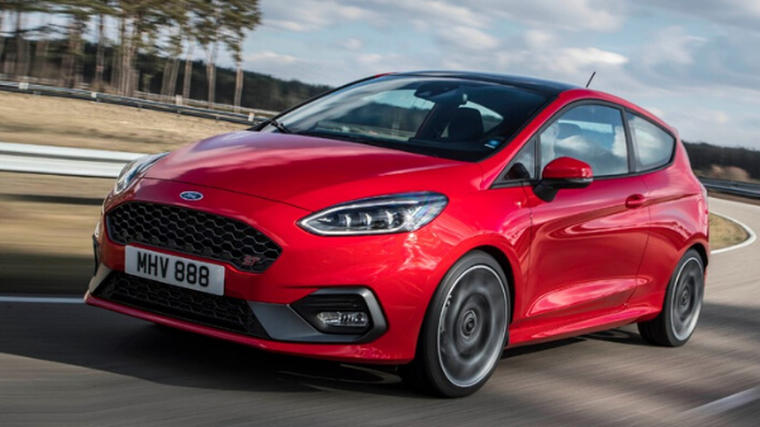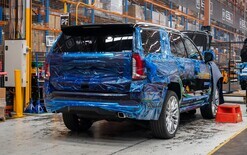UK diesel car sales plunge

The new-car market in the UK fell back in 2019 as annual registrations tumbled for the third consecutive year, according to the Society of Motor Manufacturers and Traders (SMMT).
There were 2,311,140 units registered last year, representing a 2.4 per cent decline as the market reacted to weak business and consumer confidence, general political and economic instability, and confusion over clean-air zones.
The annual decline was driven primarily by falling private demand with registrations from consumers down by 3.2 per cent, while the small-volume business market tumbled by 34.4 per cent. Fleet registrations, meanwhile, remained broadly stable, up by 0.8 per cent. The overall top three models were the Ford Fiesta, pictured, Volkswagen Golf and Ford Focus.

Demand fell across nearly all vehicle segments with only the dual-purpose and specialist sports categories experiencing growth – up by 12 and 19.2 per cent respectively. Despite registrations of super-minis and lower-medium cars falling by six and four per cent, these smaller vehicles remained the most popular – with a combined market share of 57.1 per cent.
There was modest growth in demand for petrol cars – up by 2.2 per cent. However, this was not enough to offset the significant 21.8 per cent decline in diesel registrations. December marked the 33rd month of diesel decline as continued anti-diesel rhetoric and confusion over clean-air zones hit demand. This has resulted in drivers keeping their older, more polluting vehicles on the road for longer, holding back progress towards environmental goals.
Bucking the overall trend, combined alternative-fuelled vehicle registrations surged in 2019 to take a record 7.4 per cent market share. Hybrid electric vehicles continued to dominate this sector with registrations increasing by 17.1 per cent to 97,850. Battery electric vehicle (BEV) registrations experienced the biggest percentage growth, rising by 144 per cent to 37,850 units and overtaking plug-in hybrids (PHEVs) for the first time.
While the huge increase in BEV demand is welcome, its 1.6 per cent market share is still tiny and underlines the progress needed to reach the 50-70 per cent share the government envisages in the next decade. This ambition has not been helped by the significant decline of zero emission-capable plug-in hybrids, down by 17.8 per cent – further evidence of the consequences of prematurely removing upfront purchase incentives before the market is ready.
The figures come as the SMMT publishes data showing the UK’s new-car fleet average carbon dioxide (CO2) emissions rose for a third successive year – by 2.7 per cent to 127.9g/km. Massive investment into advanced powertrains, lightweight materials and aerodynamics means new cars are more efficient with new cars emitting, on average, some 29.3 per cent less CO2 than models made in 2000. However, this could not offset the overall rise, which was due primarily to the effect of the more stringent WLTP test of new models that generally ascribes higher CO2 values than the older NEDC test, as well as some segment shifts and the decline in diesel.
December ended a turbulent year on a positive, however, with the market up by 3.4 per cent. Fuel-type demand mirrored that seen during 2019 with diesel declining by 19 per cent and petrol rising by 2.6 per cent. BEVs saw another huge increase in the last month of the year, up by 220.7 per cent, while PHEV registrations grew for only the fourth month in 2019 – up by 21.8 per cent.





